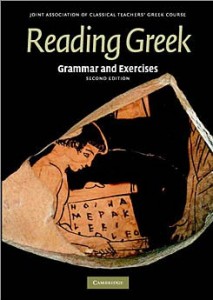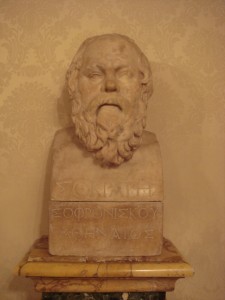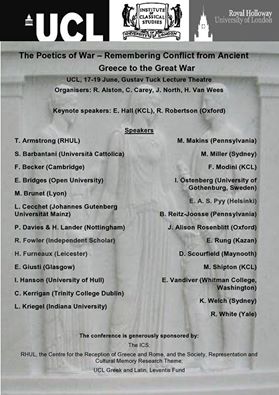Paul Found is a former Open University student who now teaches at Norton Knatchbull School in Kent. Here he tells us how his Open University MA in Classical Studies has enabled him to introduce the subject to his school’s curriculum.
We experience very few truly life-defining moments, but clicking on the ‘apply now’ button for my first Open University course is undoubtedly the one that put me on the path to the most rewarding career move I have undertaken.
It was 2005, and after working on the Channel Tunnel construction and for several years in the diving industry, I decided I was fed up with getting cold, wet and dirty for a living and it was time for a change. I decided on a career in teaching and I needed a degree, despite the fact I hadn’t written an essay since I left school in 1978. I also had a family and a mortgage, so there was no way I could give up working and this was where the Open University presented itself as the only viable option.
My decision to study for a masters in Classical Studies was itself driven by the presentation of the classical units in the old A103 module ‘An Introduction to the Humanities’ – and while I enjoyed every aspect of study, the units on the Colosseum and classical architecture, gladiators, and Euripides’ Medea had me hooked. Switching to a Classics undergraduate degree would have been simple, but I needed a job, and felt that the combination of English and History would give me more schools to choose from. Along with a mixture of luck and pure stubbornness on my part, however, the OU Classical Studies MA has allowed me to introduce Classical Studies to my school curriculum and to forge for myself the position of leading the subject alongside my role as a Teacher of English.
Studying for an MA in Classical Studies without a prior qualification in the subject was both challenging and rewarding in equal measure. The academic level of the course materials, coupled with the elevated academic requirement for the marked assignments, very quickly made me realise I was going to have to ‘up my game’. My tutor’s level of knowledge and expertise meant there would be no taking short-cuts and for me ‘near enough’ was never going to be ‘good enough’. The feedback for the first submission of my final dissertation began with ‘Oh dear Paul…’, and for the revised submission with ‘We need an urgent meeting!’ I started again, spending my entire summer holidays locked away working on the dissertation. The final result narrowly missed out on a distinction, but the experience of that year equipped me for the rigours of a teaching career more than anything the classroom or teacher training could throw at me.
The final year of the MA coincided with my first year at the Norton Knatchbull Grammar School in Ashford, Kent, which followed three years working in a somewhat challenging secondary school. Employed as a Teacher of English, I was delighted to be allocated an A level English Literature class and even more delighted that one of the set texts was Captain Corelli’s Mandolin, a novel that draws many parallels with Homer’s Odyssey. This, along with the classical references in the Shakespearean texts, presented the only real opportunities to present my classical knowledge in any meaningful way, until the school decided to drop its International Baccalaureate provision and offer a wider range of A levels. Seizing the opportunity, I offered a proposal for Classical Civilisation A level, waved my MA at the right people, and an agreement was reached to include the subject on the curriculum.
I had arguably the most eclectic bunch of students you could imagine in that first intake, ranging from a student who has subsequently gone on to study English Literature at Cambridge to another whose main interest was in computers and who hardly knew which way up to hold a pen! The one thing they all had in common was that none really knew what Classics was all about when they signed up. Those who stayed on to continue at A2 had really caught ‘the Classics bug’, and their enthusiasm did much to raise the profile of the subject. I’m delighted to report that Classical Civilisation is now the fastest-growing academic subject in the school, with five of this year’s Y13 having applied to study Classics degrees at various universities.
The subject has now expanded to a lunchtime Latin club and a well-attended extra-curricular GCSE Classical Civilisation class. Much of this is driven by the 6th form students; some even assist with the GCSE teaching and help to deliver a new initiative to take after-school Latin into a local primary school. The now annual Classics drama production has become one of the most anticipated events on the school calendar and we have a schedule of trips, events and lectures which mean we are always looking forward to something outside of the classroom, including an annual trip to Rome.
While studying with the OU taught me a great deal about the importance of time-management, it also ignited an insatiable (if time-consuming!) hunger for knowledge which went far beyond the scope of my OU assignments. It was always satisfying gaining that knowledge through totally independent study and being able to meet the assessment deadlines despite the pressures of work and life in general. How does this help me in my work? I don’t need to ‘teach’ my students what they can read in a book – they can do that themselves. In addition to ‘how to pass the exam’, I teach them what the OU taught me – how to take ownership of the subject, personalise their studies and use them as a foundation to go off and explore independently some of the many wonderful aspects of ancient life and culture.
How far we can expand Classical Studies at my school, I don’t yet know. I am currently the only teacher of the subject there, and there is only so much one person can do, but it is the enthusiasm and dedication of my students which will determine how far we can develop each year. On current form, we are going a long, long way!
Paul Found MA (Class. Stud.), Norton Knatchbull School (http://www.nks.kent.sch.uk/)
Editor’s note: If you’ve been inspired by Paul’s story and would like to find out more about postgraduate qualifications in Classical Studies at the Open University you can do so by visiting our departmental web pages here. The undergraduate humanities foundation module which Paul mentions in his post has been replaced by a newer version, The Arts Past and Present, which still includes lots of classical material: see here for more information and taster materials from that module.
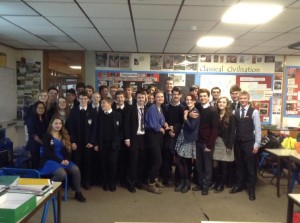
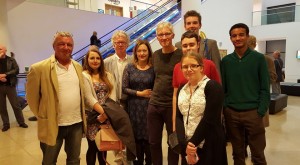
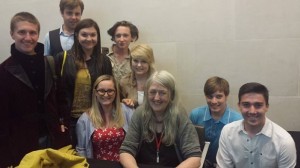
![WT_Rome1001A_med[1]](https://www.open.ac.uk/blogs/classicalstudies/wp-content/uploads/2015/12/WT_Rome1001A_med1.jpg)
![plinytheelderbottle-copy[1]](https://www.open.ac.uk/blogs/classicalstudies/wp-content/uploads/2015/12/plinytheelderbottle-copy1-104x300.jpg)
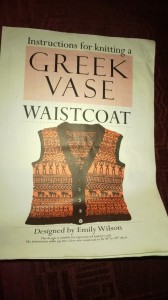

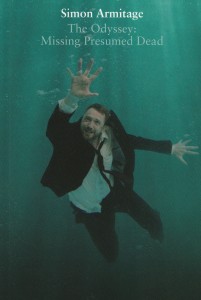
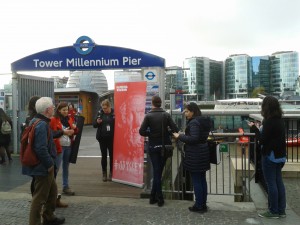


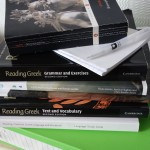
![150hornblower[1]](https://www.open.ac.uk/blogs/classicalstudies/wp-content/uploads/2015/10/150hornblower1.jpg)
![v2a21923[1]](https://www.open.ac.uk/blogs/classicalstudies/wp-content/uploads/2015/10/v2a219231.jpg)
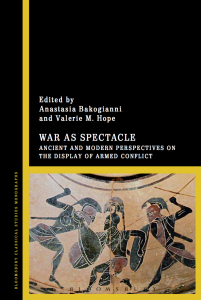
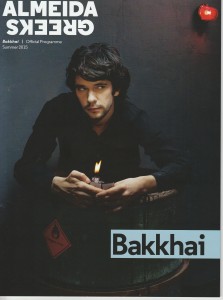
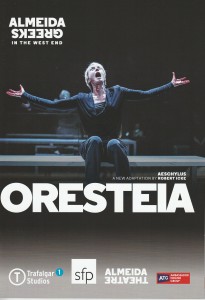
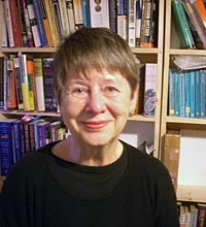 Paula originally joined the OU in November 1993 and has made an enormous contribution not only to the life of the department, but also Region 13, where she worked as a Staff Tutor. Anyone who has studied or taught on an OU module dealing with the Roman world or Latin language over the last 20 years will be familiar with Paula’s work. She has written at all levels in her time at the OU, often – in true Paula style – choosing to work in close collaboration with central academic and Associate Lecturer colleagues. On the cultural side, she co-wrote A428 (The Roman Family) and the hugely popular material on the Colosseum for A103 (An Introduction to the Humanities), in addition to making distinctive contributions on topics as diverse as Roman reputations (A219 Exploring the Classical World), Roman North Africa (AA309 Culture, Identity and Power in the Roman Empire), Buffy the Vampire Slayer (A330 Myth in the Greek and Roman Worlds) and Seneca (MA in Classical Studies). Her work on our language modules has included chairing Reading Classical Latin (A297) in production – a module that hit the headlines by attracting 1,000 students in its first year.
Paula originally joined the OU in November 1993 and has made an enormous contribution not only to the life of the department, but also Region 13, where she worked as a Staff Tutor. Anyone who has studied or taught on an OU module dealing with the Roman world or Latin language over the last 20 years will be familiar with Paula’s work. She has written at all levels in her time at the OU, often – in true Paula style – choosing to work in close collaboration with central academic and Associate Lecturer colleagues. On the cultural side, she co-wrote A428 (The Roman Family) and the hugely popular material on the Colosseum for A103 (An Introduction to the Humanities), in addition to making distinctive contributions on topics as diverse as Roman reputations (A219 Exploring the Classical World), Roman North Africa (AA309 Culture, Identity and Power in the Roman Empire), Buffy the Vampire Slayer (A330 Myth in the Greek and Roman Worlds) and Seneca (MA in Classical Studies). Her work on our language modules has included chairing Reading Classical Latin (A297) in production – a module that hit the headlines by attracting 1,000 students in its first year.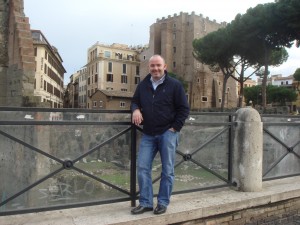 , I’m now approaching the big half century and I’m a freelancer in the aviation industry, having previously served in the RAF. Before joining the OU I had no experience of university level education, having left school at sixteen with a clutch of ‘O’ levels. A trip to Rome reignited my childhood interest in the classical world and I began to read more about it. This was the point at which, with some trepidation, I decided to give the OU a go, over twenty five years since I’d written more than a couple of sentences together, never mind an essay!
, I’m now approaching the big half century and I’m a freelancer in the aviation industry, having previously served in the RAF. Before joining the OU I had no experience of university level education, having left school at sixteen with a clutch of ‘O’ levels. A trip to Rome reignited my childhood interest in the classical world and I began to read more about it. This was the point at which, with some trepidation, I decided to give the OU a go, over twenty five years since I’d written more than a couple of sentences together, never mind an essay!